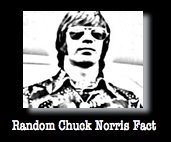This editorial in the New York Times may help to explain some of the reason as to why the United States has fallen behind much of the world in basic math and science skills. When did it become so un-P.C. to give children some basic tools to build on?
An excerpt from the article:
One of the most infamous fads took root in the late 1980’s, when many schools moved away from traditional mathematics instruction, which required drills and problem solving. The new system, sometimes derided as “fuzzy math,’’ allowed children to wander through problems in a random way without ever learning basic multiplication or division. As a result, mastery of high-level math and science was unlikely. The new math curriculum was a mile wide and an inch deep, as the saying goes, touching on dozens of topics each year.
Many people trace this unfortunate development to a 1989 report by an influential group, the National Council of Teachers of Mathematics. School districts read its recommendations as a call to reject rote learning. Last week the council reversed itself, laying out new recommendations that will focus on a few basic skills at each grade level.
Under the new (old) plan, students will once again move through the basics — addition, subtraction, multiplication, division and so on — building the skills that are meant to prepare them for algebra by seventh grade. This new approach is being seen as an attempt to emulate countries like Singapore, which ranks at the top internationally in math.



4 comments:
Q: What do you get if you integrate fuzzy math?
A: Imaginary numbers.
Q: What do you get if you integrate fuzzy math?
A: Liberal Arts majors.
Um, to see if that new 50" plasma HDTV will fit in my TV cabinet?
Nah, I can't afford a 50" plasma, even with running through the budget with fuzzy math. However, for now I can still refer to TV as "the tube." Can you imagine that your daughter may never know what that term means?
Alright, Willie, what does the Theorem help me do?
Post a Comment